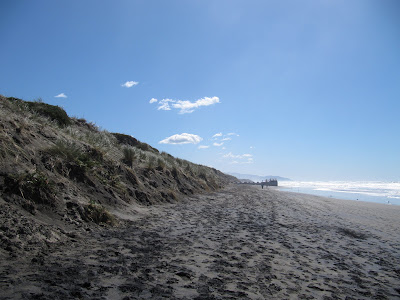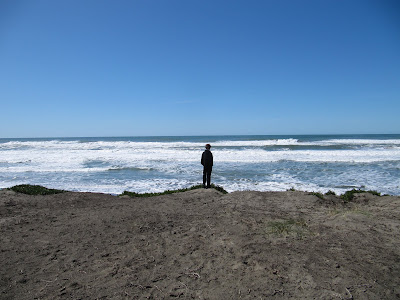
There's a baby artichoke growing in our backyard.

Everything else here is growing as well. It's spring.

My life has been in a transitional stage so long I can't remember when things felt stable around me. Everything is in flux; as I find something to hold onto, it soon gets swept away.

Most of what has been most difficult has been professional. My career has been a means to support my family the past 38 years. It has been rough at times, but I always found ways to use whatever skill I had as a writer, editor or manager to pay the bills.

In recent years this has become tougher and tougher. The economy is bad, yes, but the basic platforms where people like me made money in the past have also been evolving in ways that render us increasingly marginal, from the perspective of those who decide these things.

I've always been on the edge of journalism, of course, but there was a time when my edge was a bigger slice than it is now.
But those are simply the reflections of someone engaged in an increasingly difficult struggle to continue supporting his children by doing what he does best. Maybe endings sometimes come in springtime; certainly in my past painful personal breakups occurred in this season. (Jobs usually ended in the fall and winter.)
My second marriage ended in the spring of 2003; my girlfriend left for the Gulf Coast, never to return in the spring of 2006.
But none of this matters to me tonight; all I have seen today is beauty -- the loveliness of new things growing in the yard; my children at week's end.
Others things may soon pass, the signs suggest; but I feel serene tonight that I have done my best and there will always be things I cannot change.
Meanwhile, I'll stay focused on new life, its patterns and colors. On hope.
-30-








